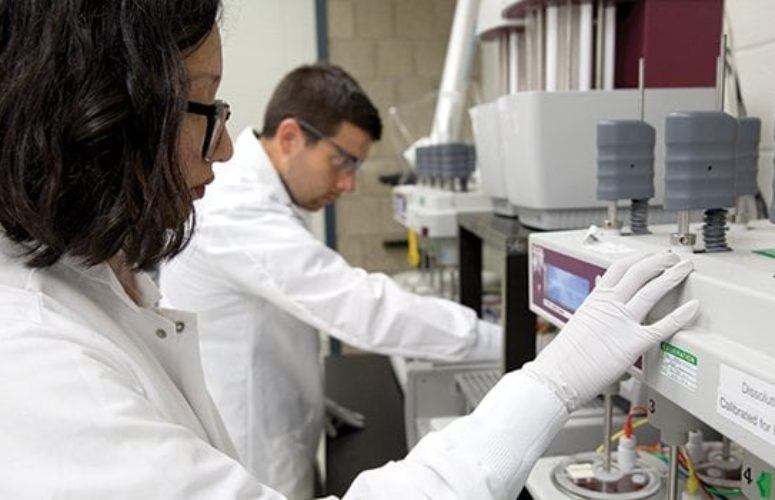
Research Dollars at Work Fighting Cancer at All Levels
By American Cancer Society, Northeast Region On Dec 10, 2018Each year, for about the past 25 years, the cancer death rate has gone down. That’s worth celebrating. But our efforts to prevent deaths are far from over. In this year alone, more than 600,000 Americans will die from cancer. In the next 10 years, cancer is expected to become the leading cause of death in the United States.
In New Jersey, the American Cancer Society estimates that 53,260 residents will receive a cancer diagnosis this year. And 16,040 people will die from the disease.
The American Cancer Society research program has played a role in many of the prevention, screening and treatment advances that save lives from cancer today. And, we continue to fund research to help save even more lives in the future. For many years, a big investment in cancer research has yielded findings that have improved cancer prevention, diagnostic technologies, and new approaches to treatment such as immunotherapy.
“Cancer has had a declining death rate every year since 1991,” says Rebecca L. Siegel, MPH, scientific director of surveillance information at the American Cancer Society. “This success is due to a combination of cancer prevention, improvements in screening and early detection, and advances in cancer treatment.”
With support from an American Cancer Society research grant, Jennifer Tsui, PhD, MPH from Rutgers University is studying the specific care process or delivery strategies that may improve transitions from primary care to specialty cancer care. She’s specifically studying Medicaid patients with breast or colorectal cancer.
“Low-income and racial/ethnic minority patients, particularly those with Medicaid coverage, have worse cancer outcomes, Tsui says. “Evidence shows that they are more likely to be diagnosed late, less likely to get and complete treatment, and less likely to survive than higher income or non-minority patients. Our goal is to improve those outcomes.”
Research shows that vulnerable populations often receive low-quality cancer care. Those populations include those insured by Medicaid, with low incomes, and who are part of a minority group. Yet, few studies focus on the underlying healthcare processes that contribute to poor care.
Tsui’s findings may help set the foundation for a new cancer care transition intervention within Medicaid healthcare settings.
Whether we’re conducting research or funding it, our goal remains the same: to free the world from the pain and suffering from cancer. Together, we are attacking cancer from every angle.
Related Articles:






